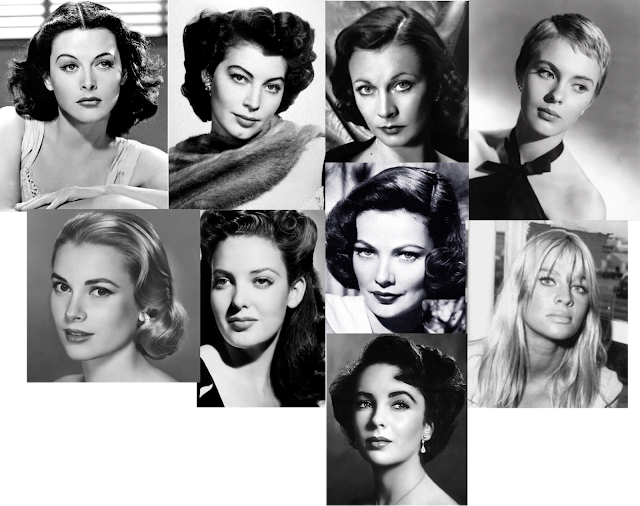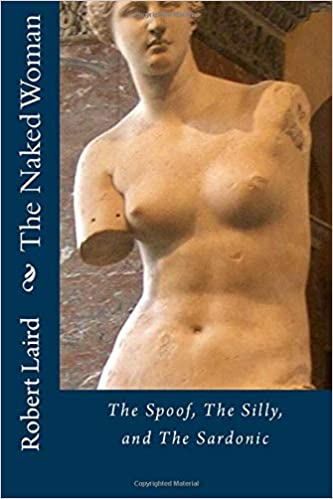The Polymath Thing
There is such a thing as conventional beauty, conventional everything, even science.
Yeah. I’m that thing. I know more about more stuff than anybody you know personally.
Answers to these questions: 1) People who seem to know something about everything; 2) Mostly; 3) Because the word “polymath” is almost last on the list of topics you have invaded with your insatiable curiosity; 4) Very. Very very rare these days.
But I am a writer and can therefore prove myself a polymath. I’ve written more than 20 books and more than 4,000 blog posts averaging a thousand words apiece, and I defy anyone to identify a topic I haven’t written about, cogently, analytically, creatively, satirically, or even poetically. I can still remember the uniform numbers of every member of the 1964 Phillies, I understand the quantum basis of the riddle of Shroedinger's Cat, I know why Ernest Jones was wrong about Hamlet and who the best 20th century Shakespearean actor was (not Olivier), I have teased out the truth of abortion statistics since Roe v. Wade, I have read the Count of Monte Cristo in the original French, I have devised my own inflammatory theories about IQ and the 3-dimensionality of time, I still know how many rounds Ali fought in his professional fights, I know the differences between Kant and Hegel and why nobody understands Nietszche, I can identify every car built between 1929 and 1979 (and have driven most of them), I can name the presidents in order, except for Millard Fillmore and Franklin Pierce, I know the truth about Roswell and the Kennedy assassination, I have seen ALL the Oscar winning movies until a few years ago when they became political picks, I have personally visited the sacrificial well at Chichen Itza, the Civil War battlefield of the Wilderness, the catacombs and sewers of Paris, I’ve also navigated the Grand Prix course of Monte Carlo, I’m in love with Mozart and jazz (yes, Django Reinhardt, you too), and the now defunct form known as rock and roll, and I can still recite from memory works by Poe, Coleridge, Longfellow, Shelley, Baudelaire, Catullus, Shakespeare, and Edwin Arlington Robinson. My formal education comprises history courses about Rome, Europe since the fall of Rome, the U.S., China, and Japan, including their philosophical writings. I have, all in all, read more books than any of you, including the western literary canon and dense ones about information theory, chaos and complexity theory, and the misnomered quantum theory (because there is still no theory to account for the 100 percent success of quantum experiments). I know what statistical T-tests are and why they make most of what you think you know a joke, and I know why Darwin was right to suspect he might be wrong.
There’s such a thing as unconventional beauty, unconventional thought, even science and history.
Why do polymaths matter? Context. Most people, especially these days, live in silos or slices. Our buddy up above, Fred Mitchell, who thinks he’s a polymath, just lives in a wider than average silo. He knows more computer languages than most. Cool. But he exemplifies the definition of a silo person. He does not know what he knows not of.
The slice people are the same but different. They live in some kind of stratum, be it class or neighborhood or avocation, that blinds them to how many different ones live above and below them, economically, culturally, educationally, philosophically. Everyone they know is a lot alike, and their experience is so limited there’s no room to find out about the wider, broader, deeper world outside, say (just for an example), Manhattan. Or DC. or White Plains. Or Cambridge MA or Centerville OH. It’s all they know. Everyone is more or less like them (mostly atheist bunny-humpers).
Except they aren’t. All like them, I mean. People do vary. The world is bigger, way way bigger, and more beautiful and mysterious and wondrous than it ever seems to the silo and slice dwellers.
But they’re the 99 percent now. If you don’t believe me, show me just how much this pic makes you yawn.
Scientists can’t tell you if this wall is 1,000 or 10,000 years old. No carbon dating for rocks.
Context. Everything we think we know we don’t. Only polymaths explore this particular dark corner of our modern sophistication. Why the silo and slice people are utterly unable to appreciate how absolutely ridiculous a turn our nation has just taken.
But take it from me. Ridiculous is a weak word. We have become, overnight, laughable. Who am I to say? I’m the guy who knows more than all the ones who pretend to know and spend all their waking days hiding their fakery.
We should never have let the French sell us on the fiction of Lady Liberty.
Think about it. It took them exactly 100 years to kill the Constitution and the Republic. Good going. Why 5,000 years of patriarchy kept them bottled up and mostly docile. They got a 50-year head start on me, but I fought the good fight and lost.
Now we get to reap the whirlwind. Enjoy the ride.















Comments